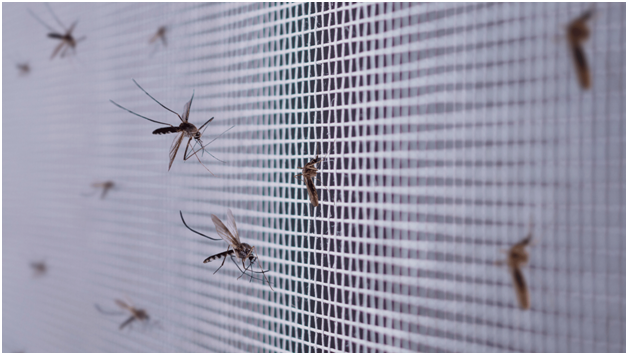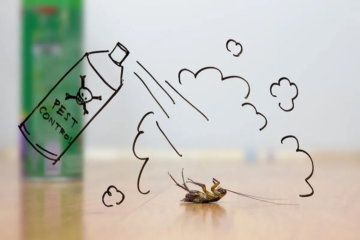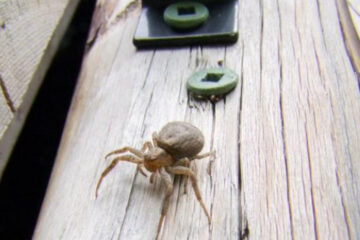Debunking Myths About Mosquito Control: What Really Works

Mosquitoes are not just a nuisance; they are also vectors for several dangerous diseases, including West Nile virus, Zika virus, and dengue fever. As awareness of the health risks associated with mosquitoes grows, so too does the number of myths and misconceptions surrounding mosquito control methods.
This article aims to debunk some of the most common myths about mosquito control and provide evidence-based solutions for effectively managing these pests.
Myth 1: Bug Zappers Are Effective Against Mosquitoes
One of the most pervasive myths is that bug zappers are an effective solution for controlling mosquito populations. These devices attract and kill flying insects using ultraviolet light. However, research indicates that bug zappers are largely ineffective against mosquitoes.
Reality: Studies have shown that most mosquitoes are not attracted to UV light; instead, they are drawn to carbon dioxide and body heat produced by humans and animals. While bug zappers may eliminate some non-target insects, they do not significantly reduce mosquito populations. Instead of relying on bug zappers, consider using traps designed specifically for mosquitoes, which utilize carbon dioxide and other attractants to lure them effectively.
Myth 2: Citronella Candles Are Sufficient for Mosquito Control
Many people light citronella candles during outdoor gatherings, believing they provide adequate protection against mosquito bites. While citronella does have some repellent properties, its effectiveness is often overstated.
Reality: Studies show that citronella candles can reduce mosquito activity in small areas, but their effect diminishes quickly and may not last throughout the duration of an outdoor event. Additionally, the amount of citronella released into the air is relatively low. For better protection, consider using EPA-registered insect repellents containing DEET, picaridin, or oil of lemon eucalyptus, which have been proven to be more effective in repelling mosquitoes.
Myth 3: You Can Repel Mosquitoes with Garlic or Vitamin B1
There is a popular belief that consuming garlic or taking vitamin B1 (thiamine) can repel mosquitoes. This myth suggests that the smell from these substances will deter mosquitoes and reduce the likelihood of bites.
Reality: Scientific evidence supporting the effectiveness of garlic or vitamin B1 as mosquito repellents is lacking. While garlic does have some insecticidal properties, the amounts needed to make a significant impact on mosquito behavior would likely be unpalatable. For effective prevention, it’s best to use proven repellents on the skin and clothing instead of relying on dietary supplements.
Myth 4: Mosquitoes Only Breed in Swamps and Marshes
Many people believe that mosquitoes only breed in large bodies of stagnant water, such as swamps and marshes. While these areas can harbor mosquito populations, this misconception downplays the numerous breeding sites that mosquitoes can exploit.
Reality: Mosquitoes can breed in as little as a tablespoon of standing water. Common breeding sites include clogged gutters, flower pots, bird baths, and discarded containers like tires. To prevent mosquitoes from breeding near your home, regularly check for standing water, empty containers that collect rainwater, and ensure proper drainage around your property.
Myth 5: All Mosquitoes Are Dangerous
While it’s true that certain species of mosquitoes transmit diseases, not all mosquitoes are harmful. In fact, there are over 3,500 species of mosquitoes worldwide, and only a small number of them are known to transmit diseases to humans.
Reality: Understanding which species are prevalent in your area and their associated risks can help guide your pest control strategies. While it’s essential to manage mosquitoes effectively, recognizing that not all of them are dangerous can reduce unnecessary fear and encourage targeted control measures.
Myth 6: You Don’t Need Mosquito Control in Winter
Some people believe that mosquitoes disappear during the winter months, leading to the assumption that mosquito control measures are unnecessary during this time. While mosquito activity does decrease significantly in colder weather, it doesn’t mean they are entirely absent.
Reality: Many mosquito species enter a state of dormancy during winter, but they can survive in protected areas, such as under leaf litter or inside homes. Additionally, as temperatures rise in early spring, dormant mosquitoes can become active again. Therefore, it’s important to continue monitoring and managing potential breeding sites year-round to ensure effective mosquito control.
Effective Mosquito Control Strategies
Given the myths surrounding mosquito control, it’s crucial to focus on evidence-based strategies that have proven effective:
- Eliminate Standing Water: Regularly inspect your property for standing water and eliminate any potential breeding sites. Empty bird baths, clean gutters, and remove debris that collects rainwater.
- Use EPA-Registered Repellents: Apply insect repellents that contain DEET, picaridin, or oil of lemon eucalyptus on exposed skin and clothing, especially during peak mosquito activity hours.
- Install Screens: Keep mosquitoes out of your home by installing screens on windows and doors and ensuring they are in good repair.
- Consider Professional Pest Control Services: If you are struggling with a significant mosquito problem, consider hiring a professional pest control service. They can assess your property, identify breeding sites, and implement targeted control measures.
- Promote Natural Predators: Encourage the presence of natural mosquito predators, such as bats, birds, and dragonflies, by providing suitable habitats in your yard.
Conclusion
Understanding the realities of mosquito control is crucial for effectively managing these pests. By debunking common myths and focusing on evidence-based solutions, homeowners can take proactive steps to protect themselves from mosquito bites and the diseases they transmit.
Implementing effective strategies, staying informed, and considering professional assistance when needed can lead to a mosquito-free environment, ensuring a safer and more enjoyable outdoor experience.




